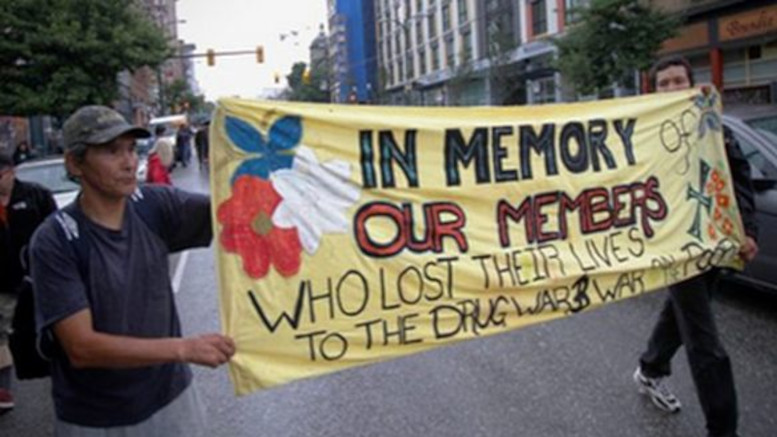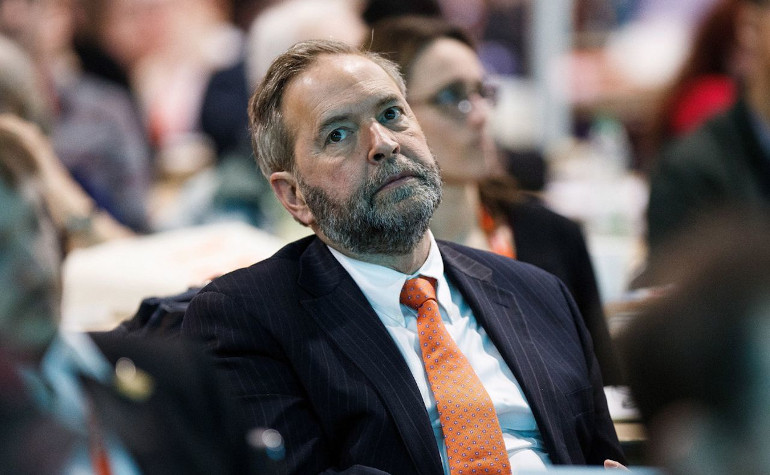The recent announcement that possession of up to 2.5 grams of certain illicit drugs will be exempted from criminal prosecution in BC has rightly been called a historic “forward step” towards addressing the ongoing toxic drug deaths. But in emergency situations, “forward steps” are not good enough — not if they are too slow and too small. Help is being slow walked while loved ones are dying. This is death by policy.
The announced change does not even take effect until 2023 — more than one full year after the province applied to the federal government for the exemption, and seven years into the public health emergency that was finally declared in 2016. Almost 10,000 people have died in BC since then, but the authorities claim they need still more time to “adjust” before the exemption is implemented. While they “adjust,” over 1,000 more people in BC will likely die of toxic drugs — and many more will be injured.
Neither does the exemption go far enough. The threshold of 2.5 grams is based on the advice of police, and is far lower than the 4.5 grams the province applied for, which in turn was lower than what experts and people who use drugs recommended. Such a low threshold will not even permit many people to sustain themselves for a single day; it will be of little convenience to those who lack access to a regular supply of drugs, such as people living in rural communities, or with mobility challenges; and it penalizes cooperation among un-housed people, who often carry drugs for each other. Even according to the opaque police data upon which this threshold is ostensibly premised, 15 percent of the people currently being arrested for possession will continue to be arrested after the exemption comes into effect. And, in reality, this percentage may turn out to be far higher: according to The Canadian Press, an access-to-information request has indicated that police data actually shows that over 75 percent of people will continue to face arrest after the exemption kicks in. As The Tyee has pointed out, moreover, previous commitments by the Vancouver Police to forgo arresting people for possession have utterly failed to translate into fewer arrests in practice.
The exemption’s biggest failing, however, is that it does nothing to help people secure a safe supply of drugs — the best and most obvious way to prevent injuries and deaths from toxic drugs. Until their drugs are safe, not just legal, people will continue to be lost — especially those who are young, poor, racialized, or otherwise vulnerable. Their deaths are due to deliberate policy decisions.
Federal Minister of Mental Health and Addictions, Carolyn Bennett, characterized the exemption as “bold,” but it has already been criticized roundly. Advocacy groups like Moms Stop The Harm and the Vancouver Area Network of Drug Usershave been clear and united in the position that the exemption is wholly inadequate as an emergency measure. And BC’s chief coroner, Lisa Lapointe, has publicly stated that it will do little to save lives. In fact, even the provincial and federal governments are not presenting it as a solution: rather, it is officially part of a three-year experiment to determine if BC can replicate the success that a decriminalization approach has met with in places like Portugal.
But even as an experiment the exemption has faced criticism. For example, the former federal health minister Jane Philpott expressed “anxiety” that the experiment’s failure might prove only that the 2.5 gram exemption threshold was too low, or that the experiment was too short: according to Philpott, the evidence from Portugal took longer than three years to collect and assess. Portugal also did far more than just decriminalize drugs, including providing support for users and access to alternative drugs. As an experiment, in other words, BC’s exemption is designed to fail.
These numerous criticisms of BC’s drug exemption as both an emergency measure and an experiment are clear indications that much bolder action is needed. But recently the federal government decided not to even seriously consider extending it to the rest of Canada, despite the fact that the public health emergency is by no means restricted to BC. The will of neither politicians nor the police is up to the task at hand.
This failure of willpower, justified by false and dangerous ideas about drug use, is nothing new and has in fact always been the root of the problem. Toxic drug deaths represent a systemic failure— they are not the fault of individual people who use drugs.
Evidence of this systemic failure is everywhere. It can be seen in the media’s neglect of the ongoing emergency — compared, for example, to its extensive coverage of gun violence and COVID, both of which have killed fewer people in BC. It can be seen in the federal government’s slow response to the emergency — compared, for example, to its rapid response to the Russian invasion of Ukraine. And it can be seen in the guilty verdicts handed to the pharmaceutical corporations Purdue Parma and Johnson & Johnson in 2019 that proved they aggressively marketed legal opioids and hid evidence of the associated risks.
According to a 2019 stock market analysis by economists at the University of Essex, moreover, investors actually anticipated the pharmaceutical industry’s aggressive marketing of opioids and the resulting windfall in profits (based on a fall in the global price of opium), and invested accordingly. This study highlights how investors consciously profited from legal opioid prescriptions given to many of the people now dying from criminalized poisoned drugs.
The new BC drug exemption is a continuation of this systemic failure. It is a hard-won admission that the War on Drugs has failed, but this admission needs to be coupled with a decisive alternative approach. No experimentation is needed to end toxic drug deaths: it is obvious what needs to be done. Socialist Alternative demands that drug use be decriminalized. We demand access to a safe supply of drugs for all those who need it. We demand social supports for those in recovery or withdrawal.
This is death by policy, and we demand that it end.




